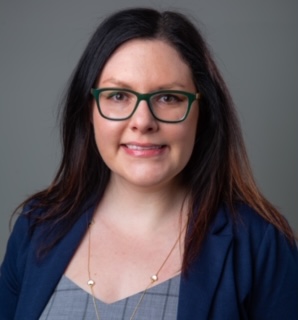Dissemination & Implementation Science
Provider and caregiver perspectives on tailoring treatment for families impacted by caregiver substance use
(PS9-37) Provider and Caregiver Perspectives on Tailoring Treatment for Families Impacted by Caregiver Substance Use
- KH
Kalyn Holmes, Ph.D.
Postdoctoral Fellow
Denver Health Hospital Authority
Denver, Colorado, United States 
Sarah E. Cleary, N/A, Ph.D.
Child & Adolescent Outpatient Psychologist, Denver Health Medical Center
University of Colorado, School of Medicine
Denver, Colorado, United States- SC
Sydney Cople, Ph.D.
Psychologist
Denver Health Medical Center
Denver, Colorado, United States - SH
Sean Hatch, Ph.D.
Psychologist
Denver Health Hospital Authority
Denver, Colorado, United States - MC
Maya Carter, B.A.
Research Assistant
Denver Health Hospital and Authority
Centennial, Colorado, United States - KD
Katy Doles, LCSW
Child and Adolescent Clinician
Denver Health and Hospital Authority
Denver, Colorado, United States - LW
Lucia Walsh Pedersen, Ph.D.
Assistant Professor of Psychology
University of Colorado, School of Medicine
Denver, Colorado, United States
Author(s)
Co-Author(s)
Caregiver unhealthy substance use (CUSU) is a prevalent concern associated with many negative youth outcomes including developing a substance use disorder and behavioral and emotional concerns later in life (Clemans-Cope et al., 2019; Lander et al., 2013). As such, early interventions aimed at serving this population and preventing such negative sequalae are needed. Families impacted by CUSU balance multiple obligations (caregiver recovery, youth behavioral and educational concerns, child welfare and/or justice systems involvement) which contribute to difficulties accessing and remaining in behavioral health services (Peisch et al., 2018; Radel et al., 2018). Alternatives for Families: A Cognitive Behavioral Therapy (AF-CBT) may fill this gap given its effectiveness with multi-need families involved with social welfare systems (Kolko et al., 2012; Kolko et al., 2018). However, AF-CBT lacks formal guidance on how to work with families impacted by CUSU. To inform implementation of AF-CBT with this population, this research included interviewing providers and caregivers with lived experience regarding treatment needs, barriers to care, and AF-CBT’s fit as a treatment for families with caregiver substance use (Atkins et al., 2016).
We enrolled behavioral health providers who served families impacted by CUSU (n = 12) and caregivers with lived experience of unhealthy substance use (n = 5). We conducted semi-structured interviews with all participants including a review of AF-CBT components, participant views on needed additions or changes to the treatment, and facilitators and barriers to engaging in behavioral health care. Caregiver interviews also included prompts about the caregiver’s personal experiences with treatment for themselves and their children. Four coders used an iterative grounded theory approach to identify common themes from participants’ experiences and perspectives (Corbin & Strauss, 1990).
Caregivers and providers found AF-CBT’s structure (i.e., whole family inclusion in therapy combined with separate youth and caregiver sessions) an appealing component of treatment. Themes related to a need for reducing stigma, increasing provider knowledge about reporting to child protective services, discussing substance misuse with families, and reducing systemic and logistic barriers to treatment. One provider noted that “Families trust us more when we discuss risk and reporting clearly. It can be destigmatizing, and they know ‘oh this treatment isn’t punishment for my family’s problems.” These findings also suggest that modifications to AF-CBT should include increasing patient-provider trust and use of practical and “immediate access to what [families] need”. Additional findings and implications will be presented.

.png)
